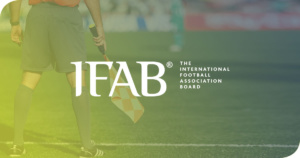
The world of football has been divided by potential proposals to change a selection of the game’s rules in a bid to make football more attractive.
The International Football Association Board (IFAB), which is the independent body that determines the laws of football, has published a strategy document called ‘play Fair’ that proposes some 18- rule tweaks to the existing rulebook.
IFAB said some of the proposals could be implemented immediately and require no law changes, while some are “ready for testing/experiments” and some are “for discussion”.
One such proposed change would be to reduce halves from 45 minutes to 30, with the clock stopped when the ball is out of play to reduce time-wasting. Another idea up for discussion is that of a player being allowed to pass to themselves at a free-kick, corner and goalkick.
Another one proposes for a stadium clock which stops and starts along with the referee’s watch, and allowing a goalkick to be taken even if the ball is moving.
Others include referees blowing for half-time or full-time only when the ball goes out of play, and no rebounds after a penalty kick.
Half-time and full-time whistles will only be blown when the ball goes out of play; this is already happening in rugby.

Another proposal already being tested is a change to the order of penalty kicks in shootouts, known as the ABBA sequence. Instead of teams taking alternate penalties, the new system involves team A taking the first kick, then team B taking two, then team A taking two.
There’ll be harsher punishments for players who mob officials. This is a good, solid idea that allow referees to dish out yellow cards for those players who gang up on them protesting decisions…only the captain will be allowed to talk to the referee.
When a goalkeeper handles a backpass, they will concede a penalty. So that means death to the indirect freekick. The proposal also seeks to make it mandatory for coaches of opposing teams to have pre-match handshakes. And if a ball is handled near the goal line, a penalty goal will be awarded.
All these and more, will be discussed over the next few months, before the 2018 IFAB annual general meeting in March, which will decide which proposals should be trialled in competitive matches.
None all of the proposals are certain to become part of the Laws of the Game – each change requires a two-thirds majority between the board’s members of England, Scotland, Wales, Northern Ireland and the block vote of FIFA









